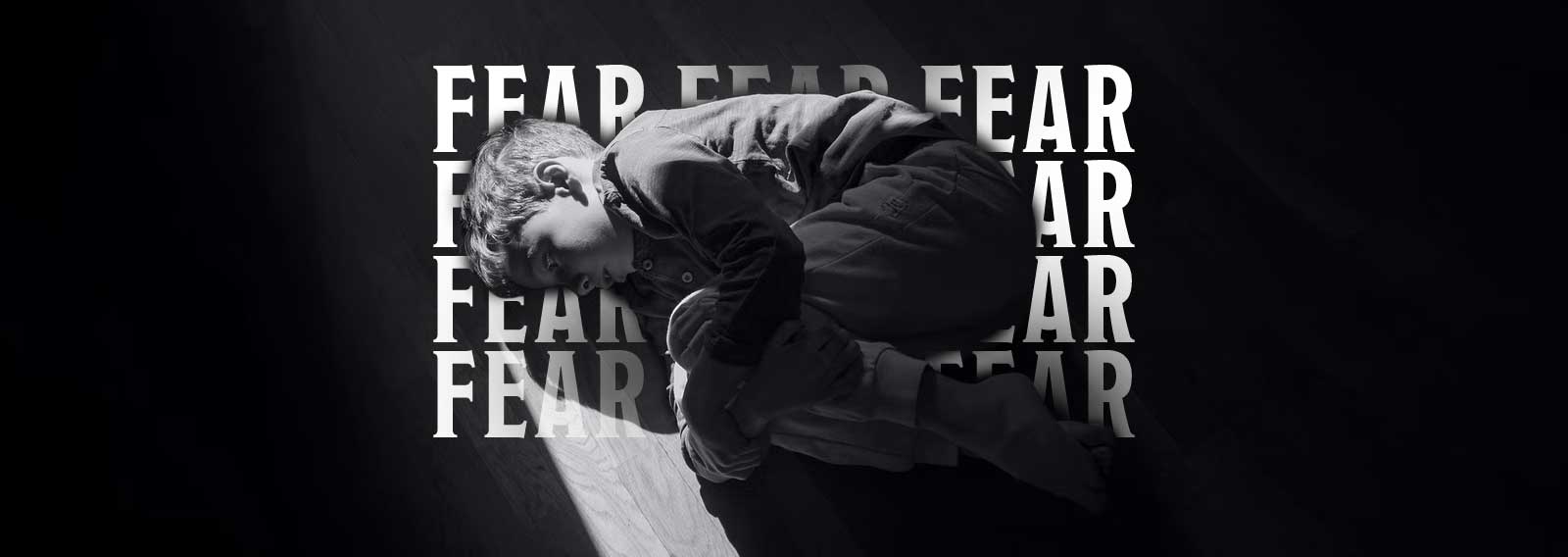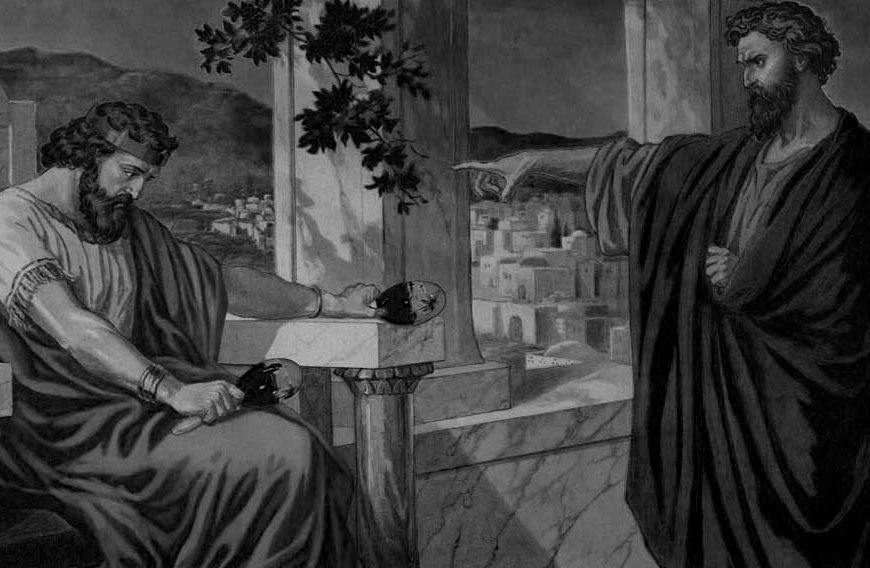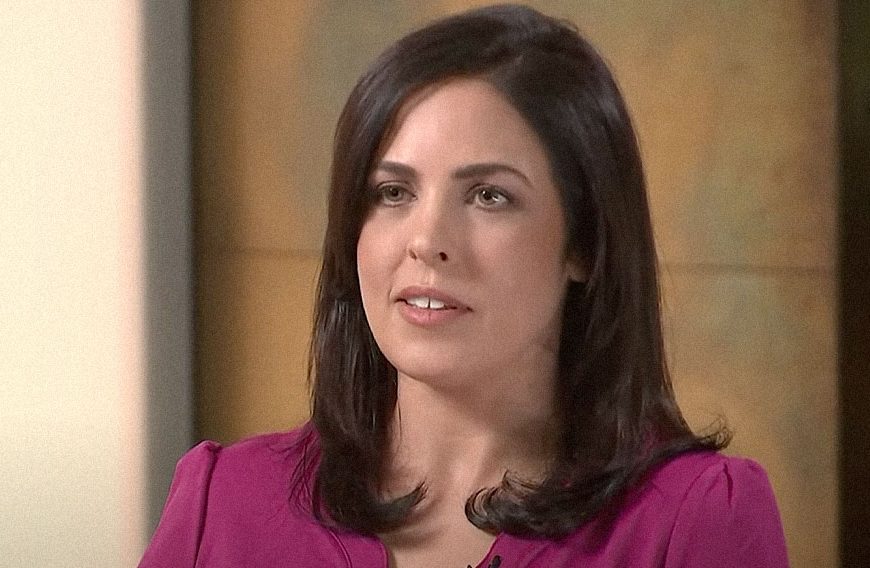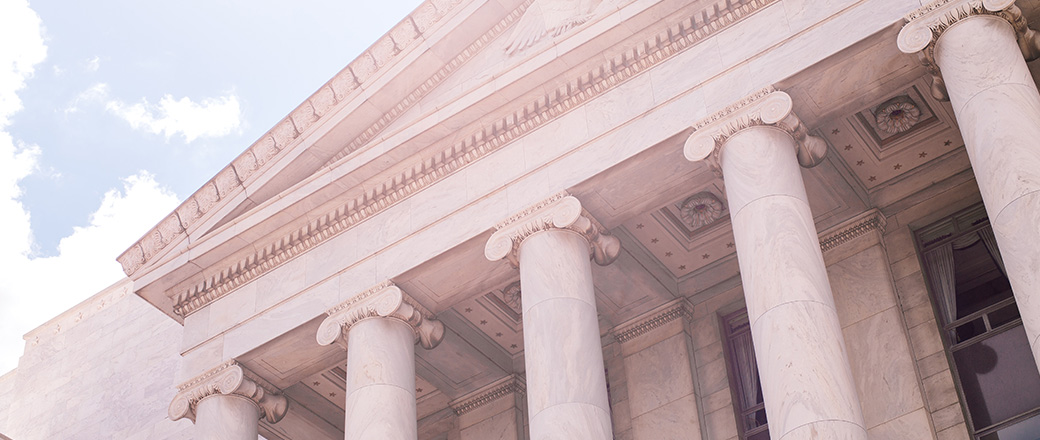Last year, a university in California conducted a survey to uncover the top ten fears of Americans. Researchers took a random sample of more than 1,000 adults from across the U.S. and asked them to rank their fears from a wide range of topics, including the environment, natural disasters, war, and disease.
For the sixth consecutive year in a row, the findings revealed the number one fear for Americans was government corruption. Second to that was “a loved one dying,” followed by “a loved one catching COVID-19.” Next was “a loved one becoming seriously ill,” “widespread civil unrest,” “a pandemic,” “economic collapse,” “cyber terrorism,” “pollution,” and finally, “biological warfare.”
What the study also revealed was that the top ten fears of Americans were, not only firmly grounded in reality, but they were largely inevitable. People fear, not only what’s likely to happen, but what unavoidably will happen. At least, sooner or later.
There’s not a government on earth that’s not infected with corruption at some level. Loved ones will die. They’re now saying everyone’s likely to catch COVID at some point. Family members will become seriously ill. Civil unrest is forever increasing in likelihood. Every week we’re being warned about the possibility of yet another pandemic, the response to which could very well trigger some sort of financial collapse, provided wars with Russia and China don’t achieve that first. And the more dependent we are on computers, the more likely it is that we’ll be subject to cyber-attacks. The list just goes on and on.
Whether we like it or not, life is filled with threats that can trigger our fears or cause us to be anxious about tomorrow. But whether those fears are rational or irrational, they can and often do, have a significant impact on our lives today.
Hasn’t the past two years profoundly demonstrated that to all of us? The fear of COVID turned our lives upside-down. It turned the world upside-down! And it continues to do so in many parts of the world to this day.
And if it’s not enough to have to fear contracting the virus itself, we also have to worry about the measures and lengths the authorities are willing to go to in their vain attempts to “slow the spread,” or achieve unrealistic goals, such as “Covid Zero.”
Without question, for the past two years, fear has been the controlling master over the lives of many. In fact, it’s been the exploitation of fear that has helped to justify some of the worst human rights abuses that many freedom-loving countries have ever known. Fear, when it takes hold, has a tendency to blind us to reality.
Now, don’t get me wrong. I’m not here criticizing sensible precautions. Whenever risk is involved, wisdom is necessary. Wisdom is a God-given gift. It’s why we look both ways before crossing a road. It’s why we wear a helmet when riding a bike. It’s why we watch our young children when they’re swimming in the pool.
In fact, we see this principle in God’s Laws, when the Lord commanded the Israelites in Deuteronomy 22:8, saying:
“When you build a new house, you must build a railing around the edge of its flat roof, that you may not bring the guilt of blood upon your house, if anyone should fall from it.”
Precaution guided by wisdom is good, and it is Godly, and it preserves and protects human life. But we must ask ourselves, is this what’s been guiding our lives? Is it precaution guided by Godly wisdom that determines our actions? Or are our anxieties mastering us? Does a fear for tomorrow dictate the course of our lives today?
In other words, are we enslaved to fear? Many people are. Perhaps most people are. The author of Hebrews tells us of those who, “through fear of death” are made “subject to lifelong slavery” (Heb. 2:15). Fear is a powerful, enslaving force.
It’s no surprise then to find repeated verses throughout the Bible telling is to “fear not.” That’s not just a “cheer-me-up” and “wish-you-well,” either. It’s a command. A divine command. This means to do the opposite of that command is to disobey God Himself, and to disobey God is sin.
Yes, God has commanded us not to murder, not to commit adultery, not to steal, but he’s also commanded us not to fear. In fact, the command to “fear not” is the most frequently issued imperative in all Scripture. It’s said the command appears 365 times!
Why so prevalent? Well, to put it simply, what is fear but the result of failing to do exactly what God has commanded us to do. The reason God so often tells us to fear not is because fear is a product of doubt. We’ve been commanded, not to doubt, but to believe. Or more specifically, to believe the promises of God.
That’s why, when the command to “fear not” is issued, it’s followed by a solid reason, and fixed basis for exactly why it is we should not fear.
A doctor who merely tells a snake bite victim not to worry about it does little to assure his patient that his fears of venom poisoning are misplaced. But the assurance that the snake was non-venomous and that the bite was more of a mild graze anyways leaves little room for the festering of fears.
That’s because the reason quiets the fears, like a child a night afraid of a dark object in the room until the lights are turned on and that threatening object becomes nothing more than a pile of old clothes. The child knows he has no reason to fear a pile of old clothes. The reason why he should not fear mastered the reason why he should fear.
So, it is with God. As often as we’re commanded to “fear not,” we’re told why it is we shouldn’t fear.
“Fear not, for I am with you…” (Gen. 26:24)
“Fear not, for I am with you; be not dismayed, for I am your God…” (Isa. 41:10)
“Fear not… I am the one who helps you, declares the LORD.” (Isa. 41:14)
“Fear not, for I am with you…” (Isa. 43:5)
Or as Jesus put it, “Do not fear, only believe” (Mk. 5:36).
In other words, belief is the antithesis of fear of this kind, because fear is a product of non-belief. If we’re fearing, we’re not believing as we ought to. If we’re fearing, it is because we’re believing something we ought not. We’re believing in something other than God.
Oftentimes, fear is simply the belief that God is not really with us, that he doesn’t really care for us, that he’s not working all things according to the counsel of His will (Eph. 1:11), and that he’s not working all things for the good of those who love him (Rom. 8:28).
In short, fear is the belief that our circumstances are not governed by the hand of a sovereign, good, and loving God.
When the Lord assures us, saying, “Fear not, for I am with you,” how often are we left thinking, “Yes, but this particular situation is bigger than you are loving, more powerful than you are sovereign, more painful than you are merciful.”
It’s a trap we all fall into for the simple fact that it’s easier to fear what we see than believe what we can’t see. We can see the cancer. We can see the injury. We can see the bank account. We can see the danger. We can see the virus. We can see the war. We can see the death.
But Immanuel, God with us – that we can’t see. So, in the midst of our trouble and distress, we find ourselves tempted to fix our eyes on what’s seen rather than unseen. But it is then that our circumstances become our fear. It’s then that our situation becomes our dread. And suddenly, before we know it, we’re enslaved.
Do you see now why Paul said we must walk by faith and not sight? That’s what faith is, after all.
“Faith is the assurance of things hoped for, the conviction of things not seen” (Heb. 11:1).
To walk by faith, and not sight is to live your life in such a way that it is controlled by a trust in God, shaped by a conviction and belief in his promises, and not driven about by fear produced by doubt and uncertainty.
To “fear not” is to believe. It is to believe the promises of God over the threats of the enemy, over the circumstances, over the diagnosis, over the storm that is raging all around us.
There’s a perfect illustration of this in the Gospels. In Matthew 14, the Apostle records the well-known account of Jesus walking on water. But Jesus wasn’t the only one to walk on water that night.
Matthew tells us that as the disciples crossed the Sea of Galilee ahead of Jesus, a violent storm hit. The disciples were struggling against the wind and waves when they looked out and saw Jesus walking towards them on the water.
They were terrified at the sight, as you would be, and they thought they were looking at a ghost or a spirit. But Jesus called out to them, saying: “Take heart; it is I. Do not be afraid.” In other words, “Fear not, for I am with you.”
At this point, Peter called back, saying: “Lord, if it is you, command me to come to you on the water.”
Jesus said, “Come.”
Peter climbed out of the boat and stood with both feet on the surface of the water. He began walking towards Jesus, one step at a time, when his eyes began to shift. Matthew tells us that Peter began to scan his surroundings and when he saw the wild winds and the raging waves, he felt a shot of fear.
Now, even though Jesus had specifically commanded him not to be afraid, when Peter began to walk by sight instead of faith, when he saw the storm, when he felt the wind, he was fearful, and being afraid he began to sink.
In his desperation, Peter cried out, “Lord, save me!” So, Jesus immediately reached out his hand and took hold of him.
What then did Jesus say to Peter? How did the Lord respond?
Jesus said, “O you of little faith, why did you doubt?”
You see, Peter’s fear was evidence of a lack of faith in God. But Peter had good reason not to fear the storm. Not only was he given the command to master his fear, but he was also given the assurance that Jesus was there with him amid the storm.
What’s more, Peter had already experienced something very similar to this before. Luke records an earlier incident in which Jesus and the disciples were crossing the lake together when a storm hit.
In chapter 8, Luke tells us that the storm was so severe, the disciples were terrified that the boat was going to break up and sink into the sea. At the time, however, Jesus was fast asleep on the boat. In a panicked distress, the disciples woke Jesus, saying, “Master, Master, we are perishing!”
Jesus got up, he rebuked the wind and the raging sea and they ceased. There was complete calm. But then Jesus did something else. He turned to his disciples and after rebuking the storm, he rebuked them! There was chaos outside of the boat, and Jesus’ word brought order. But there was also chaos inside the boat too. So, Jesus looked at his disciples and said, “Where is your faith?”
According to Jesus, their fear of the storm was the evidence of a lack of trust in Christ. It was evidence of a lack of faith in God. And just like that, we’re told their fear of the storm was gone. Now it was replaced with a different kind of fear. A righteous fear. It wasn’t their circumstances that terrified them now. They were fearful of Jesus.
Luke says in verse 25, after this, “the disciples were afraid, and they marvelled, saying to one another, ‘Who then is this, that he commands even the winds and the waters, and they obey him?’
If they were fearful of the power of the wind and the waves, how much more so should they fear him who has power over the wind and waves? You see, the point here is that when God says, “Fear not,” he is telling us that we should not fear anything more than God.
If a fear of anything greater than God demonstrates an absence of faith in God, then the fear of God will result in an absence of fear in anything else. The reason is simple: To fear God is to fear nothing else because everything else is in God’s hands.
The fear that God commands us to master is the fear that a sovereign, good, and loving God is not in complete control of the universe. To fear is to believe your life is dictated, not by Christ, but by your circumstances. That your fate is ultimately determined by the storm that is around you, not the Lord you says, “Fear not, for I am with you in that storm.”
Put it this way, when we fail to believe God, we fail to obey God. The result of this sort of doubt is a fearful disobedience. In much the same way, the evidence of believing God is the opposite of fearful disobedience, namely, courageous obedience.
Believing God will inevitably result in courage, courage to obey God. Courage in the face of the storm. Courage in response to the threat. It’s not a blind or foolish courage, but a faith in the God who has called you into the storm, who, at any moment, can quiet the storm with a word.
What that means is, at every moment the storm persists, whatever that storm may be, it continues by the sovereign will of our good and loving God.
Make no mistake, Jesus could have stopped the storm before Peter stepped out of the boat. But what need would there be for Peter’s faith working strong and courageous obedience?
“Be strong and courageous.” Like the command to “fear not,” it’s an order we see repeated throughout Scripture.
“Be strong and courageous. Do not fear or be in dread of them, for it is the LORD your God who goes with you. He will not leave you or forsake you.” (Deut. 31:6)
“Be strong and courageous… I will be with you.” (Deut. 31:23)
“Be strong and courageous. Do not be frightened, and do not be dismayed, for the LORD your God is with you wherever you go.” (Jos. 1:9)
“Be strong and courageous… Do not be afraid and do not be dismayed, for the LORD God, even my God, is with you. He will not leave you or forsake you…” (1 Chr. 28:20)
“Be strong and courageous,” King Hezekiah said to the people of Judah. “Do not be afraid or dismayed before the king of Assyria and all the horde that is with him, for there are more with us than with him. With him is the arm of flesh, but with us is the LORD our God, to help us and to fight our battles.” (2 Chr. 32:7)
Like the disciples on the boat, when we rightly view God, we rightly fear God, and when we rightly fear God, as sovereign Lord of all, even over our circumstances, and enemies, what room is left to fear anything else? Whatever our situation may be, God says, “Fear not, for I am with you.”
Is it any wonder this promise is the last recorded in Matthew’s Gospel before Jesus’ ascension into heaven?
“Behold, I am with you always, to the end of the age.” (Matt. 28:20)
It’s something the Bible is constantly reminding us of because it is something we need to be constantly reminded of. We’re certainly no better than the disciples. Although Jesus is with us in the boat, how often does the storm around us still control us through fear? In fact, it may be so bad, that at times, we feel like our Lord may even be asleep!
Fear is crippling. It’s disabling. And the enemy knows that all too well. That’s why Peter went on to warn Christians to, “be sober-minded; and watchful, because our adversary the devil prowls around like a roaring lion, seeking someone to devour.” (1 Pet. 5:8)
Obviously, the Apostle isn’t speaking physically, but spiritually. It’s not our flesh that Satan wants to devour. It’s our faith! And he can achieve that through fear.
Oftentimes, fear is used as a weapon of the enemy. It’s this way spiritually, and it’s this way physically. This should be obvious enough. Fear has proven to be an effective weapon throughout history. Fear affords an army a significant advantage in battle, and the history books show that almost everything has been attempted to achieve that end, whether it’s intimidation through sheer numbers, face and body paint, screams of madmen, the beating of drums, the waving of banners, or even fighting completely naked.
Instilling fear into the enemy is an important part of the battle. It’s a crucial weapon of war because if your enemy is fearful, he is uncertain, he is doubtful, he lacks confidence, and so, he lacks the courage and the boldness to take necessary risks.
It’s why sporting coaches give pep talks prior to the game or during halftime. The point is to boost morale. Morale can determine the match. But to fear prior to the battle is to mentally forfeit before the fight.
The same is true spiritually. If the enemy is to exploit our anxieties about tomorrow, our fears about the future, he will do this by undermining our faith in the promises of God and replacing them with a fearful expectation of something worse. As a result, not only does our faith in God diminish, but so too does our usefulness for his kingdom.
Fear is a weapon that can be, and often is, used against us. But if so, what then is our defence? Has God left us defenceless against such attacks? How do we protect ourselves from the enemies’ assaults?
Well, Paul tells us exactly in Ephesians 6:16: “In all circumstances take up the shield of faith, with which you can extinguish all the flaming darts of the evil one.”
A shield is defensive, but this doesn’t just deflect the enemies’ attacks. It extinguishes them. It puts them out. It ends them. It quenches them. In other words, we kill fear through faith.
A large flame might cause a water droplet to evaporate, but much water will extinguish the fire completely. In the same way, much fear might frighten off a little faith, but much faith will entirely extinguish fear. It makes no difference what you are afraid of. To trust in God is to fear nothing else.
That is why David said, “The LORD is my light and my salvation, whom shall I fear? The LORD is the stronghold of my life; of whom shall I be afraid?” (Ps. 27:1)
The implied answer to this question is, no one. David shouldn’t be afraid if anyone, because the Lord is with him.
Again the Psalmist says, “The LORD is on my side, I will not fear. What can man do to me?” (Ps. 118:6)
Well, there’s a lot man can do to you and me. He’s not here claiming to be untouchable. Rather, he’s affirming the truth we’ve been stating from the beginning: God has said, “Fear not, for I am with you.”
Practically speaking, what this means is, as George Whitfield famously put it: “We are immortal till our work is done.”
It doesn’t matter how ferocious the storm is. It doesn’t matter how many enemies come up against us, whether it’s Russia, China, the deep state, globalist elites, or your next-door neighbour. Those who are in Christ can confidently say, “Even though I walk through the valley of the shadow of death, I will fear no evil, because you are with me.” (Psa. 23:4)
Do you believe that or do you fear?
This is what it means to trust Jesus’ parting promise when he said, “I am with you always.” Would you be fearful if you knew, with absolute certainty, that Jesus was with you always? You could face an army of any size with the King of kings at your side. But is he not already there?
Robert Murray McCheyne once said: “If I could hear Christ praying for me in the next room, I would not fear a million enemies. Yet distance makes no difference. He is praying for me.”
Do you believe that, or do you fear?
Jesus says: “Do not fear those who kill the body, and after that have nothing more that they can do. But I will warn you whom to fear: fear him who, after he has killed, has authority to cast into hell. Yes, I tell you, fear him!” (Lk. 12:4-5)
To fear Him is to fear nothing else because he is sovereign over everything else. He is sovereign over our circumstances, over our enemy, over the storm around us, over the inevitable, over corrupt politicians, over COVID-19, over sickness, over pandemics, and over death itself.
It’s not easy. It’s an ongoing fight. It’s an ongoing battle. That’s why Paul uses war imagery. But before the doubt arises, before the fear approaches, we must “in all circumstances take up the shield of faith” and believe whatever the world throws at us, there is a God in Heaven who does all that he pleases (Ps. 115:3), who works all things according to the counsel of His will (Eph. 1:11), and for the good of those who love him (Rom. 8:28).
If you know him, if you are known by him, then “fear not,” because he is with you. And when you feel tempted to do otherwise, remember the words of the prophet Isaiah who said: “Do not call conspiracy all that this people calls conspiracy, and do not fear what they fear, nor be in dread. But the LORD of hosts, him you shall honor as holy. Let him be your fear, and let him be your dread.” (Isa. 8:12-13)



















